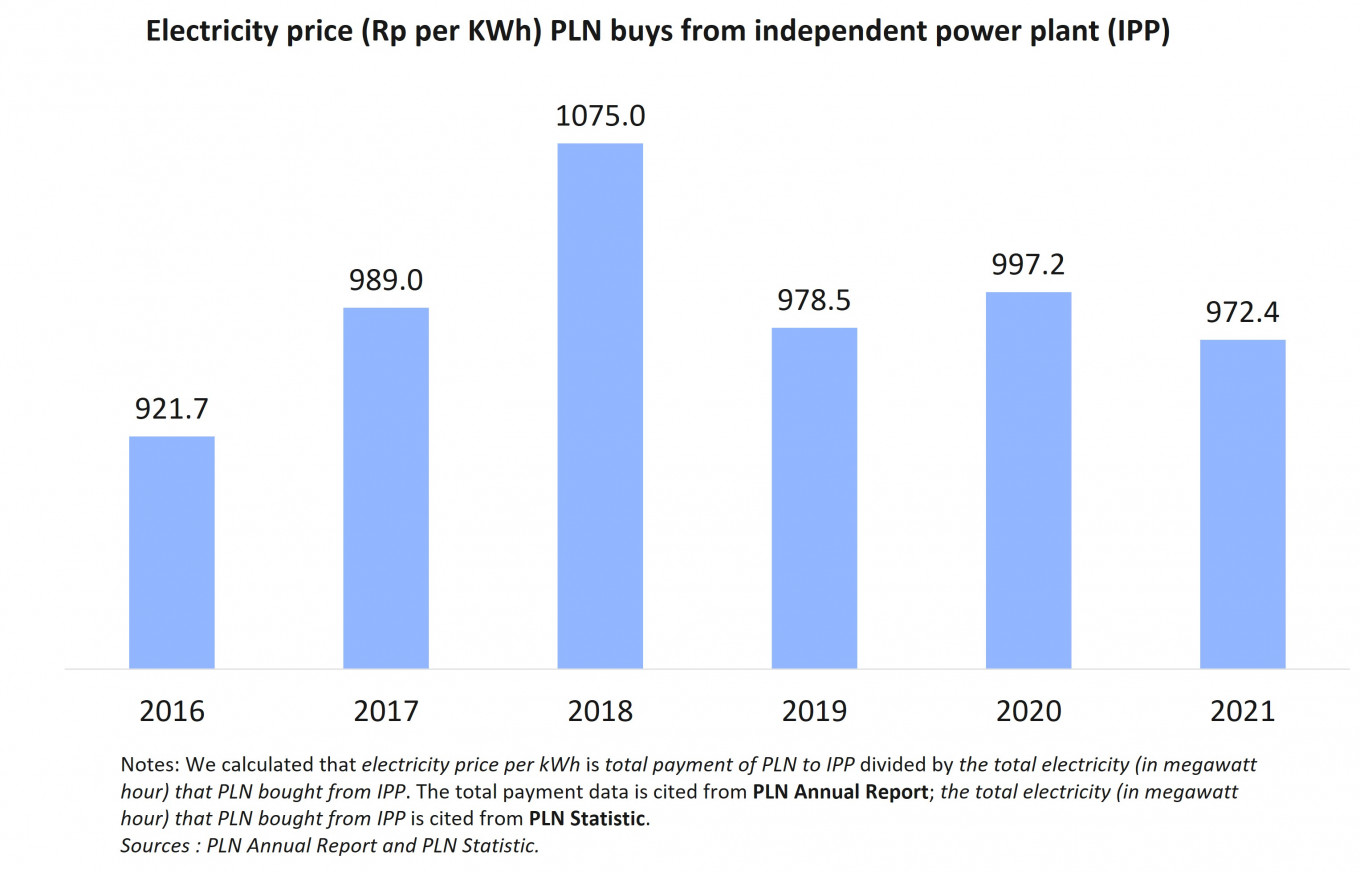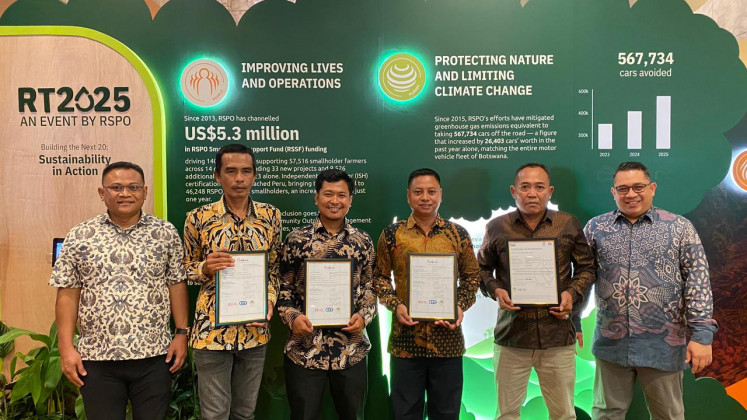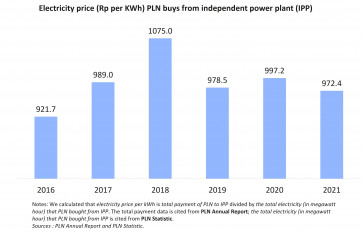Popular Reads
Top Results
Can't find what you're looking for?
View all search resultsPopular Reads
Top Results
Can't find what you're looking for?
View all search resultsElectricity pricing policy to promote renewable energy
The government has just released Presidential Decree No. 112/2022 on the acceleration of renewable energy development, to promote electricity production coming from renewable sources. One of the key points of the decree is to set the maximum electricity price purchased by state-owned electricity company PT PLN from producers of renewable electricity.
Change text size
Gift Premium Articles
to Anyone
T
he government has just released Presidential Decree No. 112/2022 on the acceleration of renewable energy development, to promote electricity production coming from renewable sources. One of the key points of the decree is to set the maximum electricity price purchased by state-owned electricity company PT PLN from producers of renewable electricity.
The decree sets the electricity price depending on the type of energy source (such as hydro, geothermal, solar cells and other sources), the capacity of the power plant (power plants with a larger capacity get lower prices) and location of the power plant (eastern parts of Indonesia enjoy higher prices than Java).
Also set was the maximum price, preventing prices from rising higher than that fixed in the decree. Implicitly, the decree protects PLN instead of ensuring renewable energy supply.
We highlight two issues in the decree: the maximum price policy and PLN’s purchasing price for renewable electricity from independent power plants (IPPs), both of which are key to promoting more investment in renewable energy.
As the electricity market in Indonesia is heavily regulated, we should assess the regulation carefully to find out whether these support renewable energy development or not.
For the first issue, we find the maximum price policy is a bit strange. The reason is that the electricity market structure in Indonesia is monopsony. This means there is only a single buyer of electricity in the market. In Indonesia, this is PLN that buys electricity from the IPPs.
If there is only a single buyer in the market, we do not need a maximum price policy to protect the buyer. The single buyer already has strong market power. Conversely, we think the appropriate policy should be to set a floor price to protect sellers, the electricity producers, from PLN as the powerful single buyer.



















